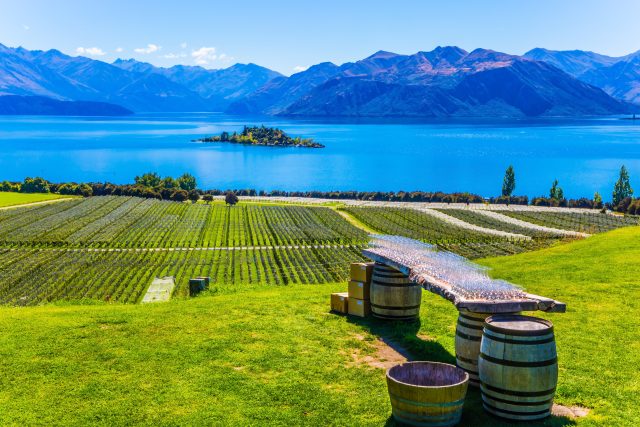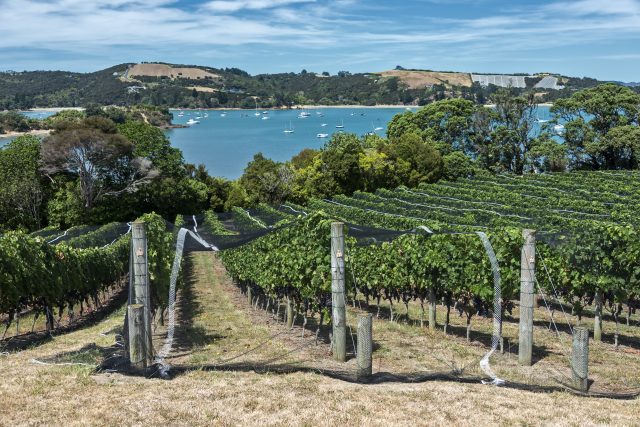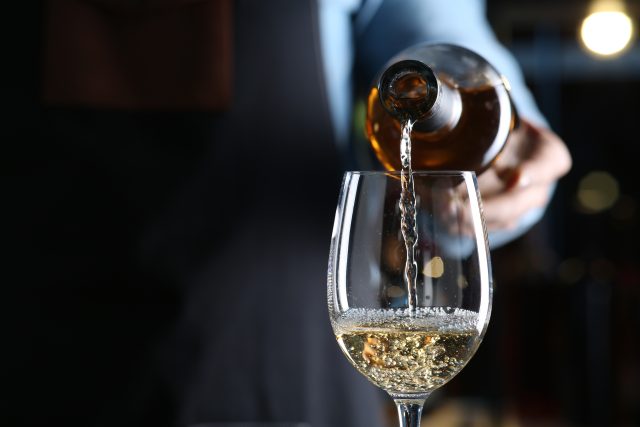Will organic wine be hit hardest by New Zealand shortage?
With New Zealand expecting a “significantly smaller” 2024 crop than the last two years, Sarah Neish investigates whether the nation’s organic producers could be disproportionately affected.

Much excitement has swirled around the uptick in organic wines from New Zealand, with David Babich, CEO of Babich Wines, telling the drinks business last year that organic is the next step up the premium ladder for Marlborough Sauvignon Blanc.
But with organic producers tending to yield smaller crops than conventional producers – whether as a result of planting fewer hectares due to the labour-intensive vineyard work required to be organic, because of disease pressure or due to the absence of synthetic fertilisers – could the short 2024 harvest throw a spanner in the works for New Zealand’s organic revolution? Or, conversely, might an organic approach play to their advantage this year?
The drinks business spoke with producers on the ground to find out.
Sarah Booker, market manager of Organic Winegrowers of New Zealand, reveals that she expects her members’ crops to be around 15% down for 2024 compared with 2023. Rumour has it that conventional producers’ crops will be around 10% down.
As to whether organic winemakers are hit harder than conventional winemakers during small harvest years, Booker says it depends on why the overall harvest in New Zealand is down in the first place.
“Last year, there was lots of powdery mildew throughout New Zealand, and conventional vineyards suffered badly from that, but organic vineyards fared very well as producers had created an ecosystem that enables vines to combat disease naturally,” she explains.
According to Philip Gregan, CEO of New Zealand Winegrowers, the predominant factor in the lighter yield for the upcoming 2024 harvest was a variable spring experienced in some of the country’s winegrowing regions.
“The weather was up and down, and the cooler weather impacted the fruit set,” he said.
Continued recovery following Cyclone Gabrielle, which struck in February 2023, may also have a part to play in the lower yields.
“The North Island regions of Hawke’s Bay and Gisborne are still suffering from some of the affects of Cyclone Gabrielle,” Rob Cameron, winemaker for Invivo, tells db. “Marlborough is also reporting lower bunch numbers and an extremely dry summer, which will also contribute to a moderate crop size.”
Ultimately, how organic producers fare this year will hinge on how many years of organic viticulture they have under their belt, because to get to the point where your vines are self-sufficient, “it takes four or five years of finding your feet,” Booker says.
Currently more than 10% of New Zealand wineries hold organic certification, and many of the country’s conventional winemakers – everyone from Villa Maria and Babich Wines to Giesen – are beginning to add one or two organic wines to their ranges as a way of hedging their bets against consumer demand and climatic events.
Booker is all for a dual approach. “We celebrate people doing both,” she says.

Does organic mean smaller yield?
Theoretically, says David Babich, if his conventional vineyard crops at 15 tonnes in any given year, then his organic vineyard might yield 11 tonnes, creating a deficit of four tonnes of grapes. However, despite the gap between the producer’s two viticultural approaches, Babich Wines is not concerned about the 2024 harvest.
Partner Content
“We still make more organic wines than we can sell,” Chris Quinn, UK & EU market manager for Babich Wines, tells db. “We’ll be OK, we’ve got lots of stock as we’re only just flipping into our 2022 vintage now. The organic category tends to be around nine-12 months behind conventional wines in terms of release. It’s a longer cycle, and the wines are better for it.”
Pinot specialists Domaine Thompson, based in Central Otago, concedes that its 2024 harvest will be lower than usual but says that its 100% organic approach has no bearing on this.
“We do not adhere to the notion that organics equals smaller tonnage,” says co-founder PM Chan. “Our 2024 vintage will indeed be a smaller one in terms of total tonnage, but that is due to a nasty springtime frost, not because we are organic.
“We aim to crop our vines to a level they are comfortable with, and always see organic as an advantage. It focuses our attention to what is happening in the vineyard below ground level rather than solely looking at the canopy when monitoring health. We spend a lot of time and money trying to improve the soil which is the building block for this vintage and many more to come.”
Domaine Thompson is in a position to offer a particularly unique perspective as the producer grows vines in both New Zealand and Burgundy. In which of the two regions is it easier to be organic right now?
“One issue with organics in Burgundy is the size of the plots,” says PM Chan. “If plots are small and close to a neighbour, then treatments have to be applied very carefully to avoid the spread of disease. Clearly if the parcel is large, it’s easier to avoid issues, as is the case in New Zealand. However, there are more and more organic growers in Burgundy nowadays.”
Rob Cameron of Invivo, which blends grapes from different New Zealand regions for its Graham Norton and Sarah Jessica Parker wines, insists that the smaller 2024 crop “won’t affect our wine supply”.
Cameron says that “organic fruit has always been an important part of our supply profile”, and tells db that “in difficult vintages our organic fruit seems to cope much better than conventionally farmed vineyards.”

Confidence high
Confidence remains high among organic producers concerning the 2024 vintage. The premium price commanded for New Zealand’s organic expressions also means that, even with yields down by as much as 15%, there is a chance for some costs to be recouped.
Villa Maria told the drinks business that the RRP for its organic EarthGarden Sauvignon Blanc is around £1.50 higher than for its Private Bin Sauvignon, “depending on retailer and promotional activity,” says Sarah Szegota, global marketing and communications director.
Case in point, the conventionally-made Villa Maria Private Bin is currently selling at Tesco for £10.50, at Sainsburys for £10.75 and at Waitrose for £10.99, which would put the price of Villa Maria’s organic Sauvignon at around £12.50.
Babich Wines’ Organic Marlborough Sauvignon Blanc is currently priced at £14.99 in Waitrose and £15.99 at Majestic.
If the ceiling has not yet been reached in terms of how much international consumers are prepared to pay for New Zealand’s organic wines, then this coupled with the increased natural resilience of fruit in the face of inconsistent climate activity means the country’s organic producers could weather the short 2024 harvest better than most.
Read db’s exclusive interview with Alberto Antonini on the risks and rewards of forgoing synthetic inputs here.
Related news
Strong peak trading to boost Naked Wines' year profitability




